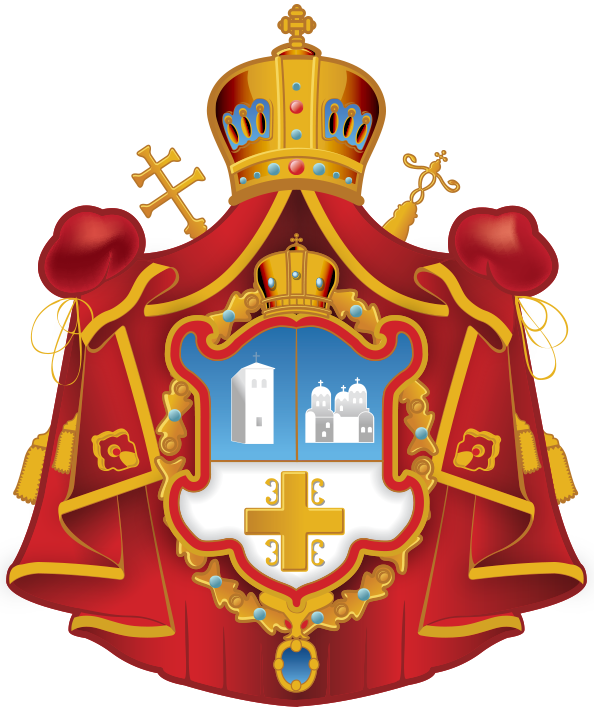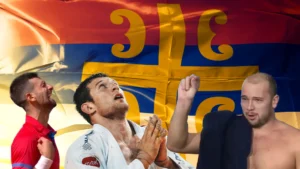Verse 11 states: “Josiah begot Jeconiah and his brothers, at the time of the exile to Babylon.”
Regarding the Babylonian exile mentioned by the Apostle Matthew in this verse, according to the explanation of Blessed Theophylact of Ohrid, it represents: “the captivity into which they (the Jews) eventually fell and were taken into captivity to Babylon. The Babylonians had previously waged war against them, but they had not caused them a lot of harm. This time, however, they utterly banished from their homeland.” Curiously, in almost the entire book of the prophet Jeremiah, the prophet issues stern warnings to the Jews that the Lord will visit punishment upon them, that the Babylonian king, Nabuchadnezzar, is an instrument of God’s punishment, and that the Jews will only survive if they surrender completely to the Babylonian king. However, the Jews would not hear of this, and they responded to his prophecies by accusing him of being a traitor and a defeatist, who was demoralising the warriors in charge of defending Jerusalem and the whole of Judah. Here are the verses from the book of the prophet Jeremiah: “This is what the Lord says: Whoever stays in this city (the prophet speaks of Jerusalem) will die by the sword, by famine, or by plague; but whoever goes over to the Babylonians will live, and they will escape with their lives; they will live. This is what the Lord says: This city will certainly be given into the hands of the army of the king of Babylon, who will capture it. Then the officials said to the king, ‘This man should be put to death. He is discouraging the soldiers who are left in this city, as well as all the people, by the things he is saying to them. This man is not seeking the good of these people but their ruin.’” (Jer. 38:2-4)
As we can see, the words of the Holy Spirit conveyed through the prophet, were simply not accepted by the Jews, because they went against their beliefs. Someone might say that the prophet Jeremiah was an anti-patriot, a fifth columnist, or, as the old expression goes, a ‘foreign agent and a domestic traitor.’ However, the prophet only really cared about the will of God, regardless of what anyone else said or what national idols they had. The Will of God sometimes differs from what we think it is, or what we wish it to be. Incidentally, it’s important to remember that throughout history, Orthodox Christians have been delivered into captivity as punishment for turning away from God. We need only recall the most recent examples, such as the communist regime in our country, as well as in other Orthodox nations. The Romanians, the Russians, the Greeks, and others suffered in the same way. These are all instruments of God’s Providence which He uses as tools for the Salvation of as many souls as possible.
Let us continue with the verses. From verse 12 to 16, the Gospel says: “After the exile to Babylon, Jeconiah begat Shealtiel, Shealtiel begat Zerubbabel, Zerubbabel begat Abiud, Abiud begat Eliakim, Eliakim begat Azor, Azor begat Zadok, Zadok begat Achim, Achim begat Eliud, Eliud begat Eleazar, Eleazar begat Matthan, Matthan begat Jacob, and Jacob begat Joseph, the husband of Mary, of whom was born Jesus, who is called Christ.”
God clearly states that Jeconiah will have no children, with the following words: “This is what the Lord says: Record this man as childless, a man who will not prosper in his lifetime” (Jer. 22:30). However, the Apostle Matthew here says that he begat Shealtiel? What is going on here? It concerns the law of levirate, which is important because it also explains certain differences in the genealogies of the Apostles Luke and Matthew. This law dictated that if a man dies childless, the widow should not marry an outsider but should be taken as a wife by the deceased man’s brother. If the deceased had no brother, then the closest relative. The children born of that marriage were considered the children of the man who died childless. In this way, such children had two fathers: one by flesh, the other one by law. Thus, Jeconiah’s wife was taken by Neri, a descendant of King David through his son Nathan. This is why, in the genealogy of the Evangelist Luke, from King David to Shealtiel, the line goes through Neri and Nathan. The Apostle Matthew shows the legal lineage, while the Apostle Luke presents the direct fleshly lineage.
This same law, the law of levirate, also provides the answer to the dilemma about the direct descendants of Joseph, the betrothed of the Virgin Mary. In the Gospel according to Matthew, it states, “Matthan begat Jacob, and Jacob begat Joseph,” while in the Gospel of Luke, it says that Joseph is the son of Heli, and Heli is the son of Matthat? What is going on here? We see that different names are given for Joseph’s father and grandfather in Luke and Matthew? The ancient apologist of the Orthodox Church, Julius Africanus, explains this as follows: “Heli and Jacob were brothers from the same mother, but different fathers. Heli’s father was Matthat, who descended from David’s son Nathan, while Jacob’s father was Matthan, who descended from David’s son Solomon.” This may confuse us due to the similarity of their names, one being Matthat and the other Mattan. Heli was married but died without children, and according to the law of levirate, Jacob raised up seed for him by fathering Joseph, the betrothed of the Virgin Mary. Joseph was naturally Jacob’s son, but he was considered Heli’s son by law. This is why Joseph could be considered the son of both fathers, hence the difference in the genealogy between Luke and Matthew. This is the truth, not some alleged contradiction that, for example, some Islamic theologians try to identify in the Bible.
As for the verse: “And Jacob begat Joseph, the husband of Mary, of whom was born Jesus, who is called Christ,” a natural question arises: why give the genealogy of Joseph, who did not participate in the supernatural and miraculous birth of the Lord Jesus Christ at all? Why not give the genealogy of His Mother, the Virgin Mary?
Saint John Chrysostom gives an excellent answer, which I will now read to you: “Why is the genealogy of the Mother not given, and why is that of Joseph, who had no part in the birth, mentioned instead? Obviously, requiring the genealogy of the Mother would have been obsolete. What needs to be addressed at the beginning is the issue of the Virgin’s descent from David. So, how can we know that she is descended from David? Listen carefully: God commands Gabriel to go to a virgin betrothed to a man named Joseph, of the house of David (Luke 1:27)…Among the Jews, it was not permitted to marry a woman not only from another tribe, but also from another family or lineage. Therefore, if we associate the words ‘of the house od David’ with the Virgin, then what is said will leave no doubt; if we associate them with Joseph, then what is said about him will also apply to the Virgin. If Joseph was from the tribe and house of David, then he took a wife not from another tribe, but from the one from which he himself descended. And what, you might say, if Joseph had violated the law? The Evangelist anticipated this question by testifying that Joseph was a righteous man, so that knowing his virtue, you may be confident that he would not violate the law… Now, why did the Evangelist not give Her genealogy but Joseph’s instead? Why is that? Among the Jews, it was not customary to trace genealogy through the female line; and to preserve the custom and not to appear as a breaker of it at the very beginning, while at the same time showing us the Virgin’s descent, the Evangelist, having remained silent about Her ancestors, presented Joseph’s genealogy. If he had presented the Virgin’s genealogy, it would have been considered a novelty; if he had remained silent about Joseph, we would not know the Virgin’s ancestors. So, to know who Mary was, where she came from, and not to violate the custom, the Evangelist presented the genealogy of Her betrothed, and showed that She came from the house of David.”
Let us continue with the verse 17: “So, all the generations from Abraham to David are fourteen generations, from David until the exile to Babylon are fourteen generations, and from the exile to Babylon until Christ are fourteen generations.”
The Holy Fathers say that by listing the three parts of the genealogy, each divided into fourteen generations, God shows that no form of governance helped the Jews become better, or more faithful to God. In the first part of the history, from Abraham to David, it was the period of the judges’ rule, then from David to the Babylonian exile, kings ruled, and after the Babylonian exile, after the return, the Israelites were governed by high priests. In all these periods, the Jews, in the words of Blessed Theophylact, “did not use these opportunities to learn to live virtuously, and therefore they needed the true Judge, King, and Priest – Christ.” I think this is an important lesson for us today, for no political programme or system of governance can help us become better, if we do not desire to live with Christ. The Orthodox Church, for 2,000 years of its history, has lived and borne fruit for God, producing holy people under various forms of government: republics, monarchies, occupations by non-Christians, atheists, etc. The Holy Fathers also point out that in the third part, from Jeconiah to Joseph, there are thirteen, not fourteen generations. The explanation for this is that Christ Himself is counted as the fourteen generation.
Adapted from patristic interpretations: Stanoje Stanković





